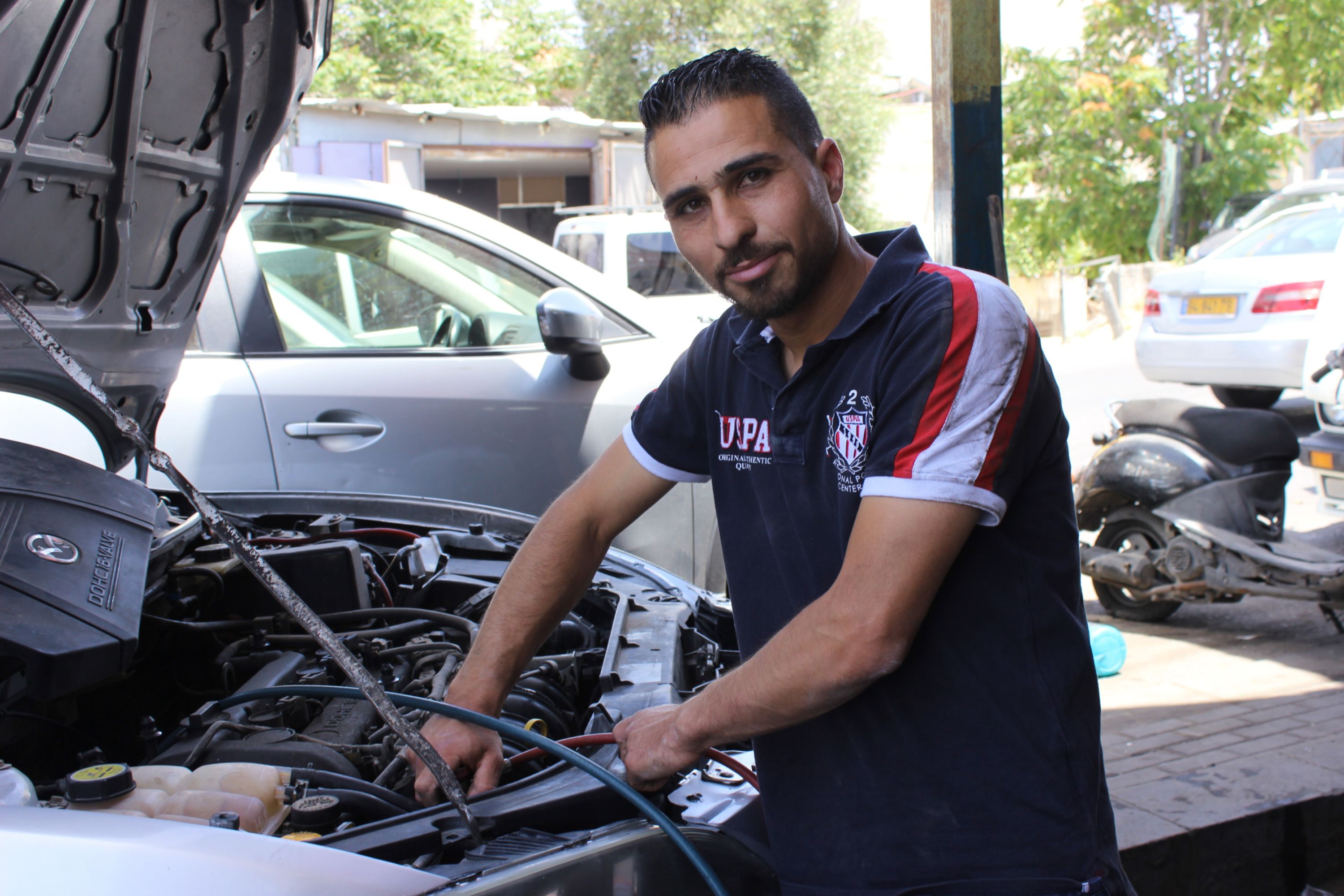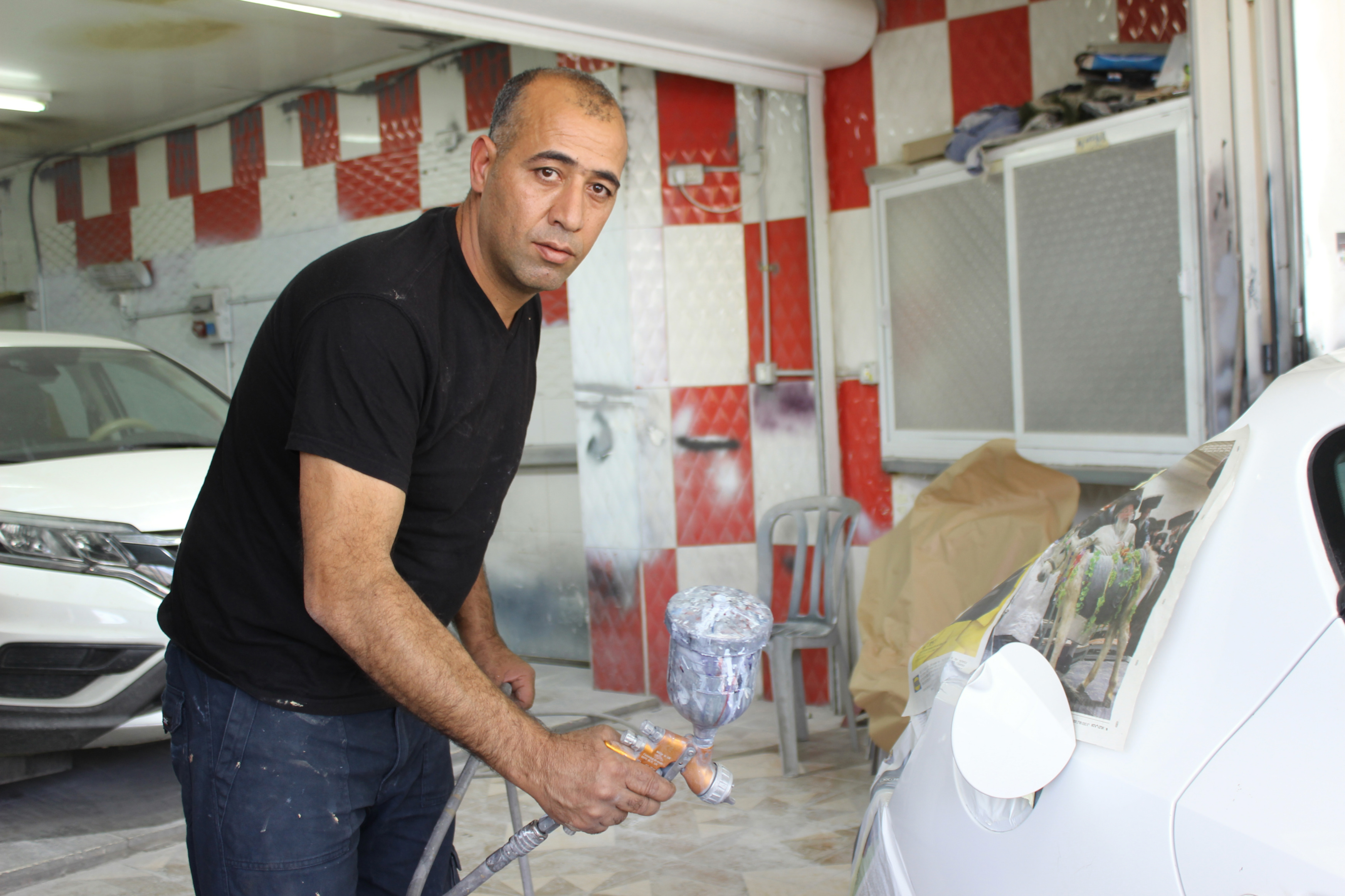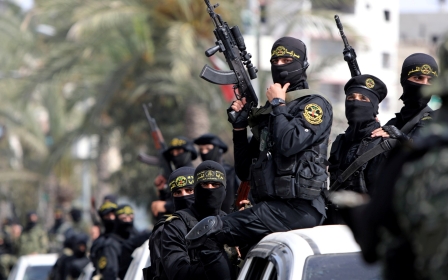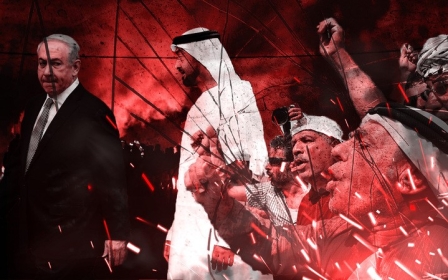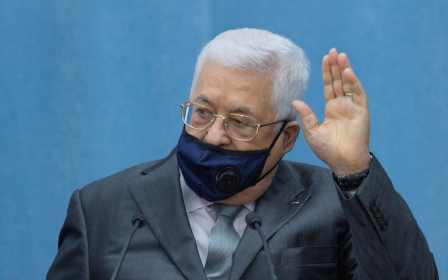‘Silicon Wadi’: Israel’s latest plans to impose control over Jerusalem’s Old City
Despite the shock he underwent when he received an order from the Israeli occupation’s municipality in Jerusalem requiring him to vacate his garage, 35-year-old Mahmoud al-Kurd’s smile never left his face as he dealt with his clients and took care of their needs.
He works full-time at the garage, built in 1960, in the only industrial area in occupied East Jerusalem. Kurd also worked there as a child, alongside his father, who had rented and run the place for decades before he passed away and handed the reigns to his sons to support their families. Kurd received the order on 1 June and has until the end of the year to vacate his business.
On 3 June, the municipality announced plans for a technology park, which it termed “Silicon Wadi”, to replace the industrial area located in the Palestinian neighbourhood of Wadi al-Joz in East Jerusalem, within walking distance from the Old City.
The 2.1-billion shekel ($600m) project allocates 250,000 square metres of “real estate for high tech companies”, as well as a further 100,000 square metres split between “commerce” and “hotels”. It falls within the “East Jerusalem City Centre” master project, approved by the Israeli occupation’s planning and zoning committee in April.
'I am here like a perennial tree whose roots extend deep into the ground'
- Mahmoud al-Kurd
It is expected that Kurd’s business will be closed down to make way for Israel’s plans for the area, though concrete details surrounding the project are yet to be released.
New MEE newsletter: Jerusalem Dispatch
Sign up to get the latest insights and analysis on Israel-Palestine, alongside Turkey Unpacked and other MEE newsletters
Kurd sells auto-parts and specialises in car electrical systems and air conditioners. For years, he chose to turn a blind eye to the rumours that surrounded him about plans by the Israeli government to uproot him and the rest of the businesses in one of the liveliest streets in Jerusalem.
“I am here like a perennial tree whose roots extend deep into the ground,” he told Middle East Eye.
“I refuse to be uprooted by the [occupation’s] municipality and to be placed elsewhere. I think that the easiest solution is for the municipality to choose another place to implement its projects, far away from the sources of our livelihood,” Kurd said, adding that he rejects the idea of starting from scratch anywhere else - even if only a few metres away from the place that he and his customers have become accustomed to.
“I will stay here to the last moment. This profession is my passion. In this old space I managed to achieve my successes,” he said.
“It is enough that the soul of my deceased father roams around me here - he is the one who rented this store decades ago and passed on his means of sustenance to us. I refuse to be an employee of a Jewish broker if we were transferred to work in the Israeli industrial areas.”
Kurd says he is well aware of the Israeli occupation’s goals for Wadi al-Joz, a neighbourhood close to Al-Aqsa Mosque and the Church of the Holy Sepulchre. He asserts that while the municipality claims that the industrial zone is too cluttered and needs to be more orderly, it had been working on these plans for years, as a way of laying a stake to this strategic area.
Negative scenarios
Some 200 metres away, Ihab Mshaashaa is busy adding the final touches to the paint job for one of his clients’ cars in the garage he has been renting for 30 years. He has not received instructions to vacate his shop, but he says he expects it in the second wave of orders.
Mshaashaa’s mind is swarming with negative scenarios, about the responsibilities he has in life upon which he has based his monthly income. Now, with the possibility of him being evicted from his store and losing the family’s only source of income, he says he is thinking about the fate of those obligations.
Mshaashaa says that the Israeli occupation’s municipality did not meet with any of those working in the industrial area to provide any alternatives, and that the store owners have little to no information about the nature of the projects to be established.
Lawyer Mohannad Jbara, who will be defending those negatively impacted by the plan, told MEE that the municipality typically proposes general structural plans for projects with a name and a number. However, it does not provide detailed plans for each building. He stressed that the municipality, by distributing evacuation notices to some of the facilities and stores in the area, tried to divert attention away from the larger “East Jerusalem City Centre” project.
The project is said to include a large space of land, starting from the Damascus gate area, passing through the streets of Sultan Suleiman and Salah al-Din streets, through part of the Sheikh Jarrah neighbourhood and part of the industrial area in Wadi al-Joz. About 40 Palestinian business owners in this area received evacuation orders along with Kurd on 1 June.
According to Jbara, the municipality proposes in this project a vision for this area to be completed in 2050, specifying the organisational landscape for the centre of East Jerusalem for the next 30 years. This essentially creates a reality in which every Jerusalemite who submits a project proposal that does not fit within the vision set by the municipality will be rejected.
Explaining the stages through which a project passes before being implemented, Jbara said that the discussion about the issue takes place firstly at the municipal committees, then moves to the district committee which is empowered to approve it. At the latter stage, it is usually assumed that the residents of the targeted neighbourhoods are consulted, before being approved in the third and final stage.
The projects in the Wadi al-Joz industrial zone have now been discussed by the district committee, but it has not been presented to the public for objections. Jbara says that the district committee did not endorse the project because the Jerusalem municipality did not take any steps towards notifying store and building owners, so the latter rushed to distribute evacuation orders in order to proceed with the project.
"Wadi al-Joz is a sensitive area and I think the district committee believes that this project is impractical because it completely ignores the garages and seeks to realise a dream of there being a technology park and 16-storey buildings,” said Jbara.
When the municipality distributed the evacuation orders, it claimed that the merchants there used the facilities in an unregulated way, even if they were built many years ago, and that it is time to impose the law against these violations. Jbara described the claim as "insolent", pointing to how an official authority has been collecting taxes from the owners of these facilities for 50 years and knows that they have been working in car maintenance, and suddenly remembers that the presence of these places is aberrant and gives little importance to their specialisations in the new projects.
The lawyer assured workshop owners in Wadi al-Joz that there are multiple legal avenues that could be pursued in their interest and that the municipality will not forcibly evict them, because it does not own the buildings that they work in. It could, however, submit an indictment against them under the banner of “irregular use".
The municipality’s project in Wadi al-Joz is just one piece of the puzzle of Israel’s tightening control over the Palestinian neighbourhoods surrounding the Old City, including Silwan and Sheikh Jarrah, through settler organisations who launch lengthy and expensive lawsuits to evict Palestinians from their homes to replace them with settlers.
"These projects will be the nail in the coffin of [Israel’s] organised control over real estate in Jerusalem,” said Jbara, adding that this is part of bringing the area in line with “their final vision for the political status quo in Jerusalem”.
According to Israeli media, the “Silicon Wadi” project will be the largest in East Jerusalem, spanning an area of 200,000 square metres of technology firms that will provide job opportunities for 10,000 Palestinian graduates and academics. In addition to tech companies, commercial facilities and hotels are to be built, and 13 streets would be turned into “pedestrian thoroughfares that will host tours and street performances at regular times through August”.
Judaisation
Jerusalem Mayor Moshe Lion told the Israel Hayom newspaper that this was a historic step to make up for [Israel’s] failure towards Palestinians in Jerusalem, and that such a project would strengthen trust in the municipality.
Such statements from Lion are not unfamiliar. Since taking office, he has been implementing a policy of soft penetration towards Palestinians in Jerusalem, by embarking on messaging campaigns that aim to portray the municipality as an ally seeking to ensure a decent living for them.
He promoted such slogans through several entertainment activities implemented in East Jerusalem during the Covid-19 quarantine period, and during the holy month of Ramadan. Yet, since he took office, Israel’s bulldozers have continued demolishing Palestinian properties in Jerusalem, or forcing Palestinians to demolish their own homes, under the pretext of not having a permit to build.
Board chairman of the Arab Chamber of Commerce and Industry in Jerusalem, Kamal Obeidat, told MEE that it was unjust to evacuate these properties, some of which date back to 1957.
Obaidat said that their number of businesses in the industrial area ranges between 160 and 180. The Arab Chamber, he added, had discussions with private landowners in the area to understand in depth the nature of the sessions that the director of the mayor’s office had with them.
During the sessions, the municipality delegate promoted the project and talked about its importance to Palestinians. In the second session, they brought in Arab investors. In the third, they put forward the idea of Google adopting the project.
Obaidat explained that the Arab Chamber sees the project as suspicious, believing it would be Israeli companies monopolising ownership and management of the businesses in this technology park, thus Judaising the entire area.
Adel al-Jaaba, one of the landowners with whom the municipality met, said he attended two sessions, during which the municipality presented the idea of a project, urging him to apply for licences to build high-rise buildings, and said it would take care of construction of the project in case they were unable to obtain licences. The municipality representatives also informed the landowners that hi-tech companies were ready to rent the buildings as soon as they were complete.
Jaaba owns a plot of 950 square metres upon which he has a building tools store. In the event that the "Silicon Wadi" project comes to light after approval, he will have to demolish it and apply for a building permit for a high-rise building to replace it. Otherwise, the municipality will take the initiative to destroy it along with a historical industrial zone spanning about 35,000 square metres.
Middle East Eye delivers independent and unrivalled coverage and analysis of the Middle East, North Africa and beyond. To learn more about republishing this content and the associated fees, please fill out this form. More about MEE can be found here.


